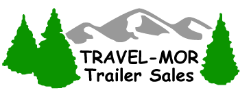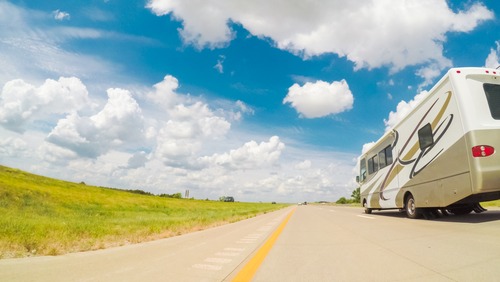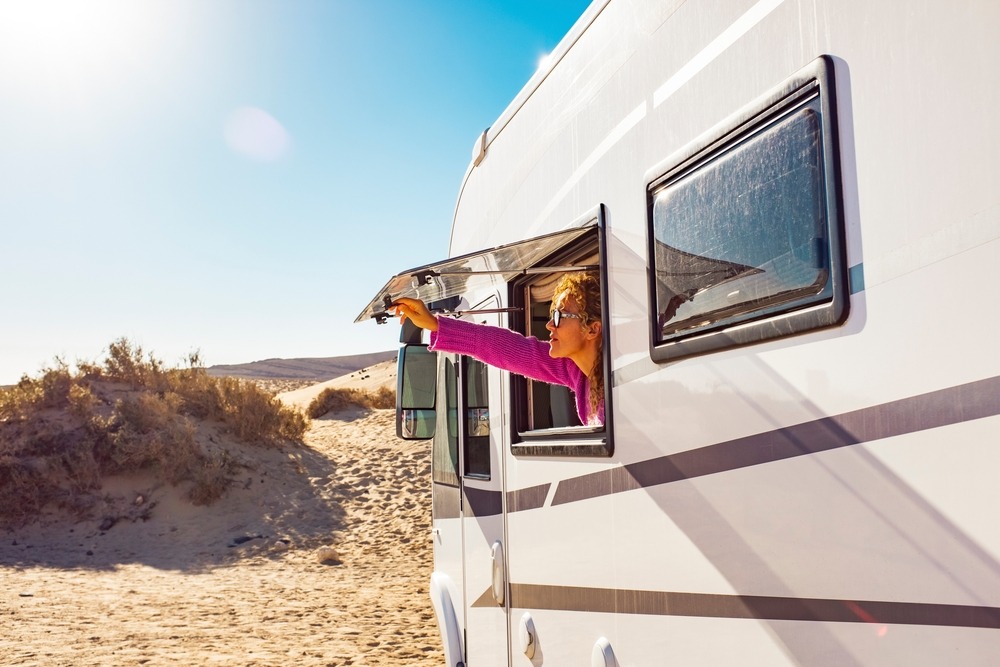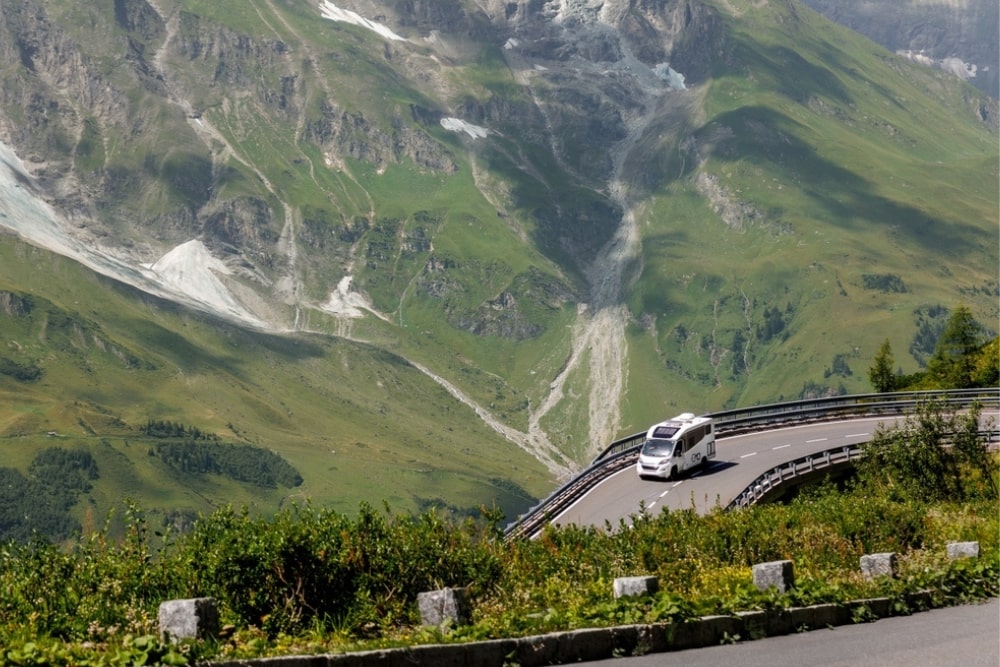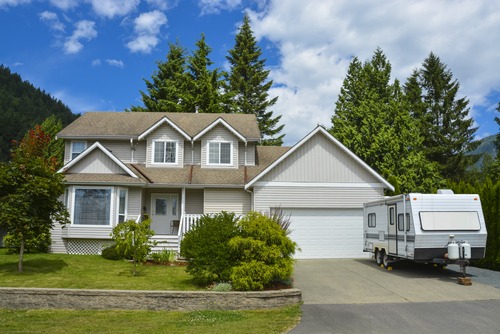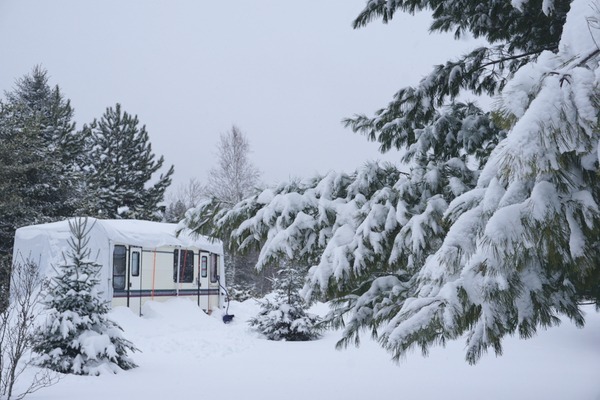
Winters in the cold regions of Canada can be testing, and require some dedication, preparation, and adaptability, especially if you plan to spend an extended amount of time in your RV. Whether on extended road trips or as a primary residence, off the grid or in a park, winter RVing comes with unique challenges. If you are not properly prepared, you can run into problems from breakdowns in your engine or fuel tank, indoor heating, or other amenities failing. Sub-zero temperatures means anything that is able to freeze is at risk, causing damage that can be incredibly difficult or expensive to fix. But do not be discouraged from simply winter storing or escaping to the warmth of the south. There are a lot of adventures to have in the snow-capped mountains, frozen lakes, and snow-covered villages across Canada and the Northern United States!
Insulation
Staying warm is critical to enjoying your winter RV adventures. Taking extra precautions to insulate your RV from the cold weather can go a long way. Pay close attention to your windows as that is where you stand to lose the most heat. Ensure they are tightly closed and consider installing storm windows for the extra layer of protection. Adding some form of sealant or insulation around the seals can’t hurt either. Fill all openings and cracks you can find with Polycel or Monofoam and add extra material to the door as well. Placing a blanket on the door can also help keep out the cold. Consider light fixtures and outlets as they can be a source of cold air. Add insulations behind the covers there and add insulation to your overhead vents as well. If you think you can improve anything else, do it! Always have extra blankets and space heaters on hand if your first attempts prove to not be enough.
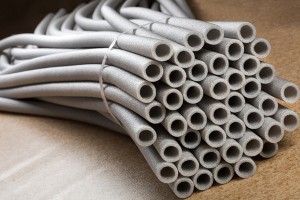 Preparing the Tanks & Pipes
Preparing the Tanks & Pipes
RV’s have a lot of fluid flowing around the piping and tanks. If you do not take the right precautions you could find them frozen, causing lots of problems. Insulating them with an enclosure and attaching heaters is the best way to prevent freezing. Ensure that dump valves are still easily accessible. If heating panels are not an option, 40-watt light bulbs acting as heaters inside the enclosure can be a nice way to keep the tanks warm. Be sure to check them regularly to quickly replace any that have burnt out. Wrapping extra insulation around every pipe you can is always recommended as well. Consider sewer tanks as well. Sewer hoses are known to not be the best for cold climates. A 3-inch car heater blower hose or PVC piping can be a good alternative. Add insulation to your water system as well and keep bottled water on hand in case of an emergency.
Propane
Cold temperatures and propane do not mix well. In extreme cold (-42 C) propane reaches its boiling point, no longer maintaining its vapour form and returning to liquid. When this happens your propane appliances will not function. Adding extra insulation around your tank will go a long way. The last thing you want to happen is your stove or propane heater to fail in the middle of a cold night when you need it most. Shield it from wind with makeshift barriers and consider getting larger tank to help supplement your supply.
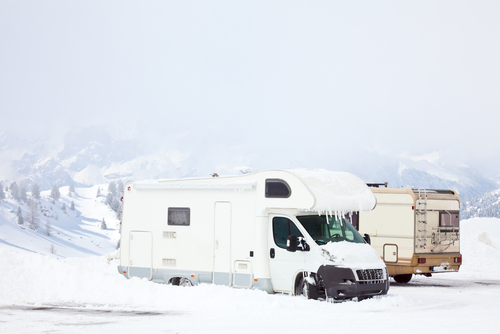 Skirting
Skirting
This all-important step might not seem important or look like too much trouble, but trust us it is worth it. Insulating the underside of your RV goes a long way to keeping it warm. You can do this yourself with Styrofoam and wood panels, or purchase a pre-fabricated one from your RV’s manufacturer. It is also not a bad idea to run an electrical space heater inside the skirting to help keep the underside and all the critical components located there warm. You can also use snow as an added form of wind-blocker and insulation, sealing up any openings along the ground.
Vents
As mentioned above, you should insulate your overhead vents. But keep in mind this will restrict airflow so at least one, most likely not the one above your sleeping area, should be left open. You need air flow at all times to prevent moisture buildup but use a vent cover to prevent snow and ice from falling in. These can be bought, or if you are feeling handy, easily built.
Miscellaneous tips
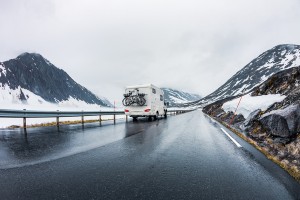 If you are parking on dirt, grass or anything else not paved over, be sure to lay down boards so when the snow thaws you do not sink into the softer ground.
If you are parking on dirt, grass or anything else not paved over, be sure to lay down boards so when the snow thaws you do not sink into the softer ground.- Carry extra batteries and ensure they are fully charged before your trip
- Consider dehumidifying products or fans to help keep out moisture
- Park clear of shade. The winter sun still has the power to keep things warm!
- Winterize your diesel engine with winterizing products. Running the engine routinely is good to keep it healthy. Let it run for a few hours before hitting the road. Engine block heaters are also recommended
- Always check with your RV’s owner’s manual for anything specific to your RV’s winter care
If you need any more winterization tips or gear this winter, call us at 613-822-1666 and will be happy to help! If you are not braving the cold in your RV this winter, we have storage options available as well!
